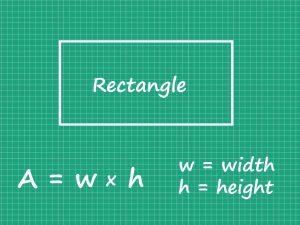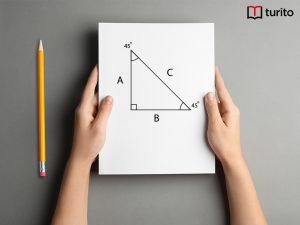A literary device is a tool that writers use to allude to larger themes, ideas, and meaning in a story or a piece of writing. Literary devices come in a variety of styles, each serving a specific purpose.
Types of Literary Devices:
Apostrophe
The term apostrophe comes from the Greek word apostrophos which means “turning away”. An apostrophe is a special form of personification where the speaker directly addresses the dead, to the absent, or to an object that is personified.
Apostrophes are used by playwrights and poets for a variety of purposes, including allowing a character or a speaker to address someone who is not present, philosophize on an abstract concept, or address a part of nature.
Apostrophes can be used in soliloquies, which are speeches delivered in front of an audience by a character in a play. In William Shakespeare’s play Macbeth, for example, a famous instance of apostrophe occurs when Macbeth addresses a dagger he imagines before him. In poetry, apostrophes frequently include a personification element, which is when something inanimate or inhuman is addressed as if it were a person. Walt Whitman uses an apostrophe to address lilacs, a star, and a thrush in his elegy for Abraham Lincoln, When Lilacs Last in the Dooryard Bloomed.
Examples:
- “Milton! thou should’st be living at this hour.”
- “Roll on, thou deep and dark blue Ocean-roll!”
Euphemism
The term euphemism is derived from the Greek words that mean ‘well’ and ‘speak’. Euphemism is the figure of speech which uses a less offensive word to conceal the true nature of something unsavory. Euphemisms are generally associated with death, sex, illness, diseases, and excretion, which may cause a certain level of pain or disgust if expressed in plain terms.
To take an example, the euphemistic expressions for ‘to die’ are: to pass away, to succumb, to breathe one’s last, etc.
More examples:
- He has kicked the bucket (i.e., he is dead).
- I don’t want you tell me any fairy tale (i.e., a lie).
Antithesis
The term antithesis itself means ‘absolute opposite.’ It is derived from the Greek word which means “setting opposite,” indicating when something or someone is in direct contrast to or the obverse of something or someone else. To put it simply, an antithesis makes a striking contrast of words in the same sentence. It is used to secure emphasis. This assists the readers and the audience members in defining concepts through contrast which in turn helps in developing an understanding of something by defining its polar opposite. Furthermore, antithesis creates a repetitive structure that allows for rhythmic writing and lyrical speech.
Examples:
- ‘Man proposes, God disposes.”
- “To err is human, to forgive divine.”
- “Not that I loved Caesar less, but that I loved Rome more.”
Oxymoron
An oxymoron is a special type of antithesis. It pairs two distinct, yet equally important qualities of the same thing that are opposing and/or in contradiction to each other. These ideas contradict each other, but they are combined to make a larger point. They are used for a variety of reasons, but most commonly to add drama and interest to the language or to describe a specific location or experience. They can frequently elicit an emotional response from the reader that the subject would not have elicited otherwise.
Examples:
- “So innocent arch, so cunningly simple.”
- “She accepted it as the kind cruelty of the surgeon’s knife.”
Metonymy
Metonymy is the literary device which uses one word to substitute for another word or an idea. The word and the idea that it substitutes are very closely associated with each other. The term metonymy itself means “change of name.” To put it simply, it is a method of replacing an object or idea with something related to it rather than plainly stating what it really means.
Metonymy is used effectively in the phrase “silver screen.” This is a literary device, which means that it is used for effect rather than literal meaning. It is also a replacement concept for movies, cinemas, and so on. The term “screen” refers to how movies were traditionally or screened in a cinema. Furthermore, “silver” is associated with classic black-and-white films and Hollywood glitter. It can serve as a metonym for words like movie, cinemas, film, and so on. As a result, words like movie or film aren’t overused.
More examples:
- The bench– for the judges.
- The laurel – for success.
- “Lend me your ears…”- ears means attention.
Related topics
Exploring the World of Adjectives: Types, Usage, and Examples
What are Parts of Speech? Parts of speech determine words’ grammatical and semantic position in a sentence. Activity time The parts of speech are nouns, adverbs, conjunctions, pronouns, interjections, adjectives, articles, prepositions, and verbs. Identify the parts of speech of the underlined words in the following sentences. White- Adjective Big- Adjective Exciting- Adjectives New- […]
Read More >>Memoir Writing: Basic Elements, Structures, and Types
Memoir: A memoir is a narrative written from an author’s perspective about a particular facet of his/her own life. ‘Memoir’ word comes from the French word ‘memoire’, which means ‘memory’ or ‘reminiscence’. Example Night: Elie Wiesel gives an account of how he survived his teenage years at Auschwitz and Buchenwald concentration camps during World War […]
Read More >>Identification of Main Idea in Fiction and Non-fiction
Every story or paragraph or non-fictional text has at least one main idea. The MAIN IDEA is what the text is mostly about. (It is backed up or supported by SUPPORTING DETAILS) Before discussing how to find the main idea, we shall first look at TOPIC. Can you define a topic? A topic can be […]
Read More >>Writing an Article: Structure and Essential Tips
What is an article? Structure of Article Writing : Title : Draw the attention of readers with an attractive title and indicate the main topic of the article Introduction : Attract the reader’s attention with a sentence that gives a general presentation of the topic. Main Body : Between these sentences, the body should do […]
Read More >>Other topics











Comments: